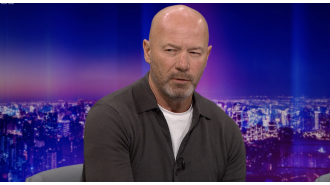Seeing Through The Fog
I was talking to my friend Simon yesterday and he observed that the essential skill of entrepreneurs and early stage VCs is to “be able to see through the fog of an emerging market and pick out the winning idea.”
And of course, I agree with that. It is something that we have done pretty well at USV over the years.
But how do you do that? Is seeing through the fog a skill that can be learned?
I think seeing through the fog can be learned but it takes time and practice.
Some people are innately good at it and they seem to be able to do it naturally.
But I was not that person. It took me years to be able to do it well and I think there are a few things that helped me a lot.
- Focusing on a sector and dedicating yourself to it helps a lot. I have been investing almost exclusively in Internet-based businesses since 1993 and that has helped me understand the dynamics, economics, and unique characteristics of doing business on the Internet. That framework helps me see through the fog.
- Doing the upfront work to have a thesis before investing in a sector is important. My partner Brad taught me this trick back when we started USV in 2003. He insisted that we have a thesis before we raised our first fund and started investing. That thesis has evolved a lot over the years but we have always had one. When we wanted to start to invest in verticals, like financial services, healthcare, and education, almost ten years ago now, we took deep dives on those sectors and developed a thesis about how they would emerge, where the value was going to be, and where we wanted to focus before making a single investment in these verticals. That has served us incredibly well as we have built/are building fantastic portfolios in all three verticals.
- Avoiding the noise is particularly important. This is hard to do unless you have a thesis. But even if you have a thesis, there is often a ton of noise around other things that you have to ignore. Otherwise, it will pull you in all sorts of directions, waste a ton of your time, and possibly lead to bad investments. I like to think of having blinders on when we are starting to invest in a new area. It is critically important to not let the hype and bluster and bullshit misdirect you.
- Using the technology of the emerging sector really helps. That is often not easy. I remember when I first started playing around with Bitcoin in 2011, it wasn’t simple to get a wallet, mine some Bitcoin, use an exchange. But I did it because I wanted to use the technology and understand how it worked. Getting your hands dirty by using the technology as early as you can will you help to see through the fog. I strongly recommend it.
- Reading everything that is written on an emerging sector is critical. I am not talking about books, they usually come too late. I am talking about academic/research/white papers and blog posts written (often poorly) by the leading technologists in the sector. There are sometimes early observers/pundits in these nascent sectors and some of them can be quite good. Find them and follow them.
- Meeting with as many people working in the emerging sector as you can will help a lot. I don’t just mean entrepreneurs but you should meet as many of them as you can. I mean everyone and anyone who is working in the sector, investing in the sector, writing about the sector, and engaging in the sector. It’s a lot of work (and travel if you don’t live in a place people come to a lot), but it is invaluable.
When something new comes along, like the Internet in 1993, Web 2/Social in 2003, Mobile in 2007, or Blockchain in 2011, initially it is opaque, like mist, as Simon said to me. But amazing business opportunities will emerge from that mist and those entrepreneurs and early stage investors who jump onto the right ones will be rewarded greatly. It takes a prepared mind to do that and you have to do the work before the opportunities start emerging from the mist. That is how you get the clarity to see the best ideas through the fog.






